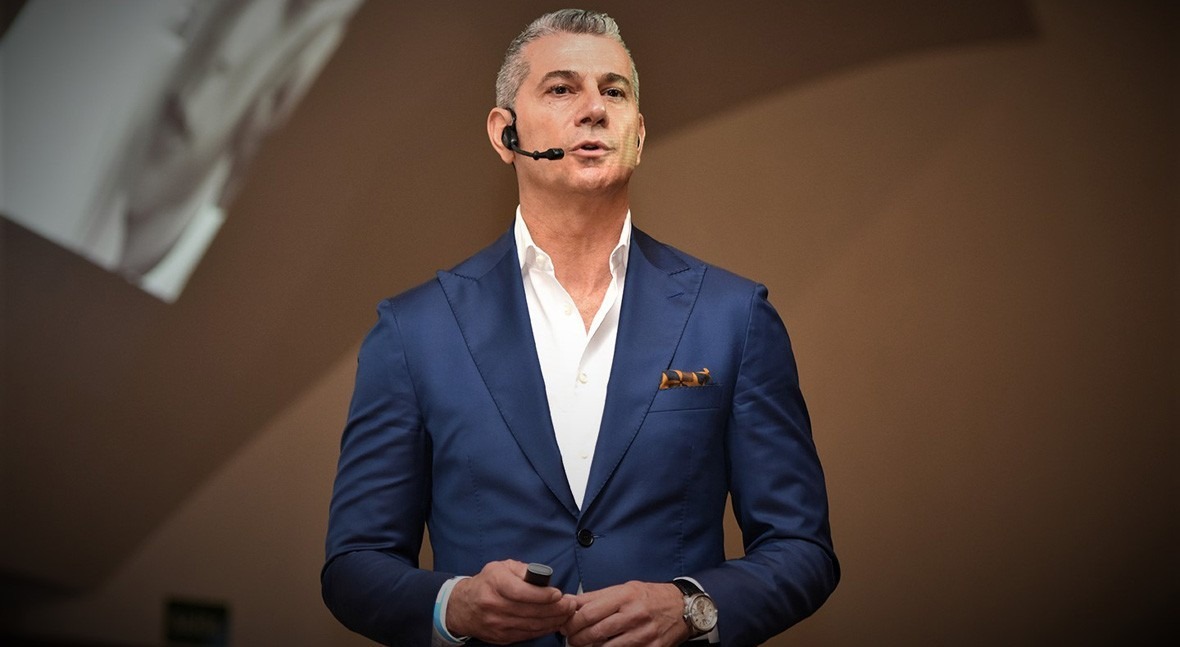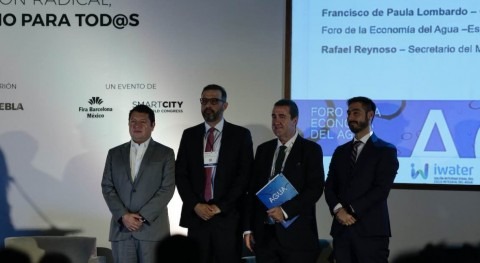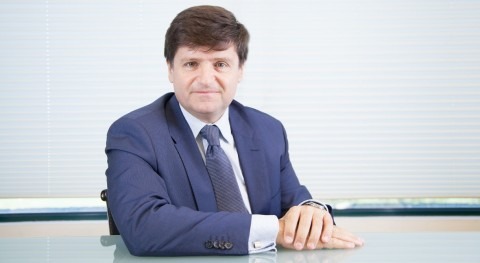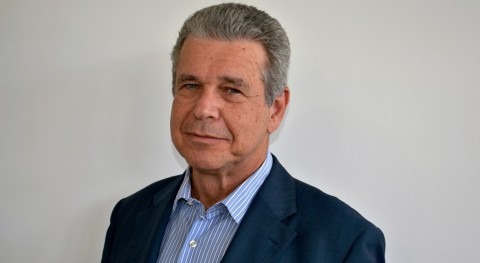Maurizio De Stefano, Director Energy & Utilities (Head Water & Environment) at Minsait, was one of the speakers at the 11th Water Economy Forum held on July 2nd in Puebla, Mexico, where he took part in the fourth session about the technology revolution in the water sector.
Maurizio has a PhD in industrial engineering from the University of Naples, and a Master from the IESE business school. Currently he is a professor of Digital Strategy and Supply Chain expert in the Polytechnic University of Catalonia, where he teaches Digital Transformation. In addition, he has been working in consulting for 20 years. Throughout his career he worked first for Unisys, to join later one of the largest consulting firms in Italy, Reply, first in Milan, then in their Brazilian office, and finally as Director General for Spain and Portugal. He has worked in many different sectors and regions around the world, and that has given him a global outlook from different perspectives. Currently he is the Director of Energy & Utilities and Head of the Water & Environment Practice at Minsait, the company that groups the digital transformation and information technologies consulting business of Indra.
Question: What is the role of innovation and new technologies in efficient water management?
Answer: New technologies are already a key element for all industries and practically for everything in our life, and this obviously will also apply to water companies.
The great advantage is that the water sector will be able to make use of lessons learned by others, such as the gas and electricity sectors, to embark upon its digital transformation process, and will benefit from the best practices established to achieve more efficient processes and management, ultimately, to build a more sustainable society and improve the quality of life of people.
But technology by itself is not enough. In addition to a commitment to technological innovation, governments and citizens must realise that freshwater is a finite resource, and that we cannot wait any longer to implement measures that protect reserves and use them efficiently. This way, water resources will be available to a larger number of people, while at the same time, their availability will be sustained into the future.

Q: What innovation trends do you believe are more important for water management?
A.- The water sector, like other industries, will experience an important revolution thanks to technological advances. Technologies like artificial intelligence will be applied to areas such as leakage detection and predictive maintenance; data analysis will be key thank to the expansion of IoT, and predictive analysis or cloud computation will be essential tools for decision making.
The element that will enable the exponential development of all these technologies will be 5G, a real revolution that will allow connecting and processing a vast amount of data, generating a new world of services that we cannot even begin to imagine.
'The future — as it is often said — is a foreign country where things are done differently'.
'The water sector will be able to make use of lessons learned by others, such as the gas and electricity sectors, to embark upon its digital transformation process'
Q: How can the private sector contribute to addressing the main water challenges?
A: Although no business can survive unless it is profitable, in the private sector it's been years now we don't talk about profit as the only parameter. Even though it's true that a large part of the strategy is based on cost-effectiveness, successful companies dedicate part of their efforts to initiatives that have a positive impact on society.
The private sector must, therefore, contribute their knowledge and experience with the most effective and suitable technologies to address the challenges we face: scarcity, availability and continuity of the supply, access by the population, and protection from natural disasters such as floods and other extreme meteorological events.
It is essential to harness the full technological potential which is already available in order to respond efficiently to water challenges. To do this, public-private collaboration formulas combine technology with know-how and offer many benefits.

Q: What technology and digitalization innovations related to water management is Minsait involved in?
A: At Minsait, as a digital transformation leading company, we are developing solutions and services that seek to ensure our clients' operations are more efficient and add value to society.
In the case of the Energy and Utilities division, this translates into solutions that focus, for example, on energy efficiency, sustainability and optimisation of operations.
In the past few years we have witnessed huge advances in the field of artificial intelligence, where we have developed innovative solutions in different areas. An example is managing leak detection in real time through the use of machine learning.
The combined use of acoustic sensors with machine learning algorithms and georeferencing systems allows us to develop solutions to minimise apparent and real water losses though a strict control of losses in water distribution networks and their location throughout the network.
Thanks to the information the system provides, it is possible to plan activities to reduce losses, monitor their progression, and take corrective action as appropriate.
'Although no business can survive unless it is profitable, in the private sector it's been years now we don't talk about profit as the only parameter'
Reducing Unaccounted-for Water, which in some countries can reach more than 30%, drives energy efficiency and operational excellence, since the cost of withdrawal, treatment and pumping is reduced. In addition to achieving a more efficient water use, it provides support to plan activities to repair leaks and breaks, thus preventing service interruptions.
Another interesting example is providing support to field staff with augmented reality solutions integrated in their mobile applications.
We are leaders in Virtual Reality, a technology that allows replacing our environment with one that has been generated digitally, applied to Serious Games, that is, virtual scenarios that replicate how a device or system really works and that can be used to train technical staff and company employees in a safe and challenging environment.
Our experience with the analysis of satellite images has enabled us to detect fraudulent water uses during periods of restrictions, with pioneering projects and in collaboration with European agencies.
Thanks to artificial vision we can use drones to analyse images of infrastructure such as dams or plants, and detect discharges or fissures.
In addition, process automation with robotics allows employees to devote their time to tasks that add more value, eliminating massive, repetitive work, helping thus increase the quality of user services.
The arrival of 5G will facilitate communication and connection processes: we will see a burst of data, and the big challenge will be how to manage it in real time.
To respond to this challenge, we propose our Big Data and IoT Onesait Platform, able to centralise all information to better manage the efficiency of operations and reduce costs.









